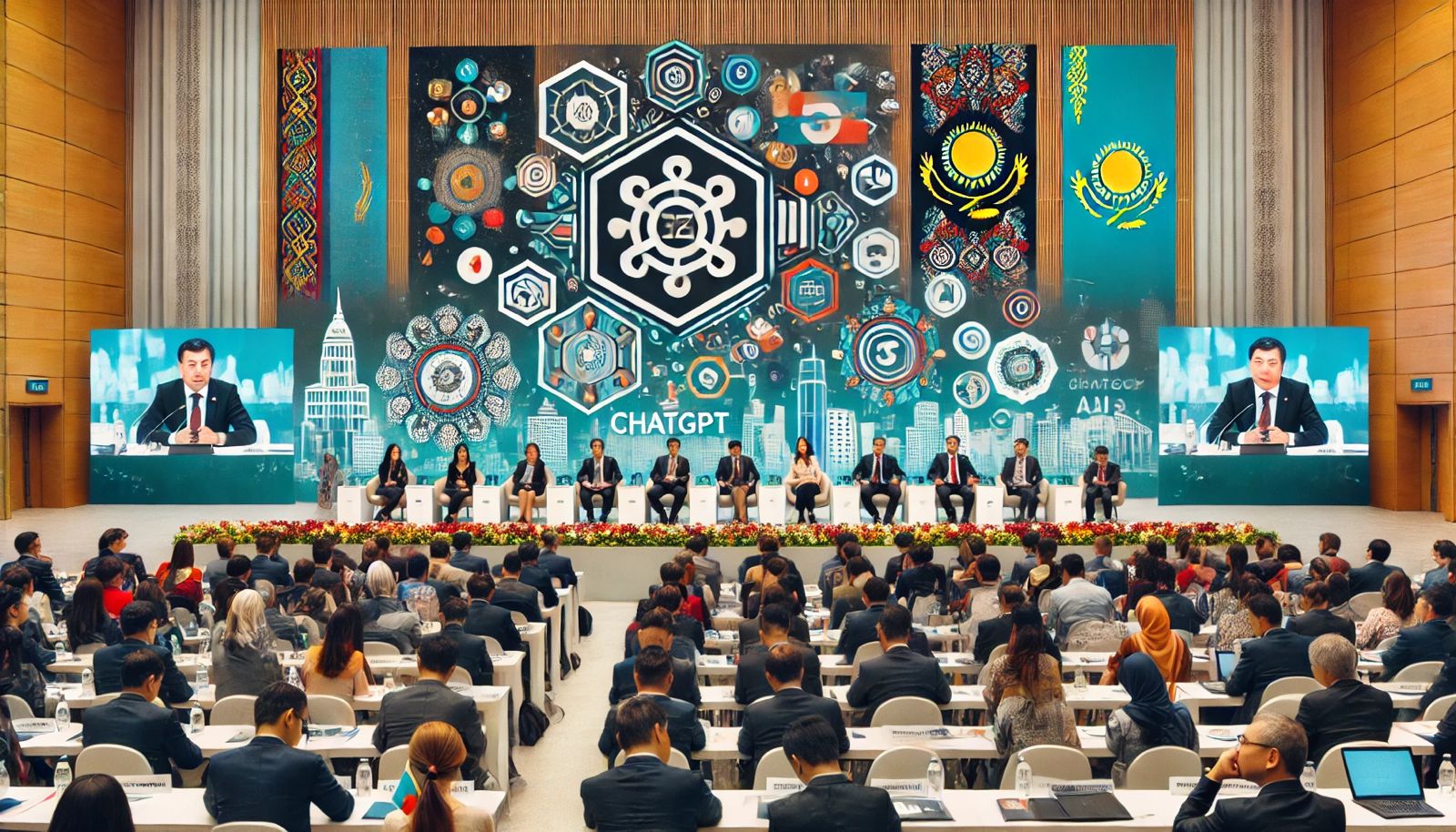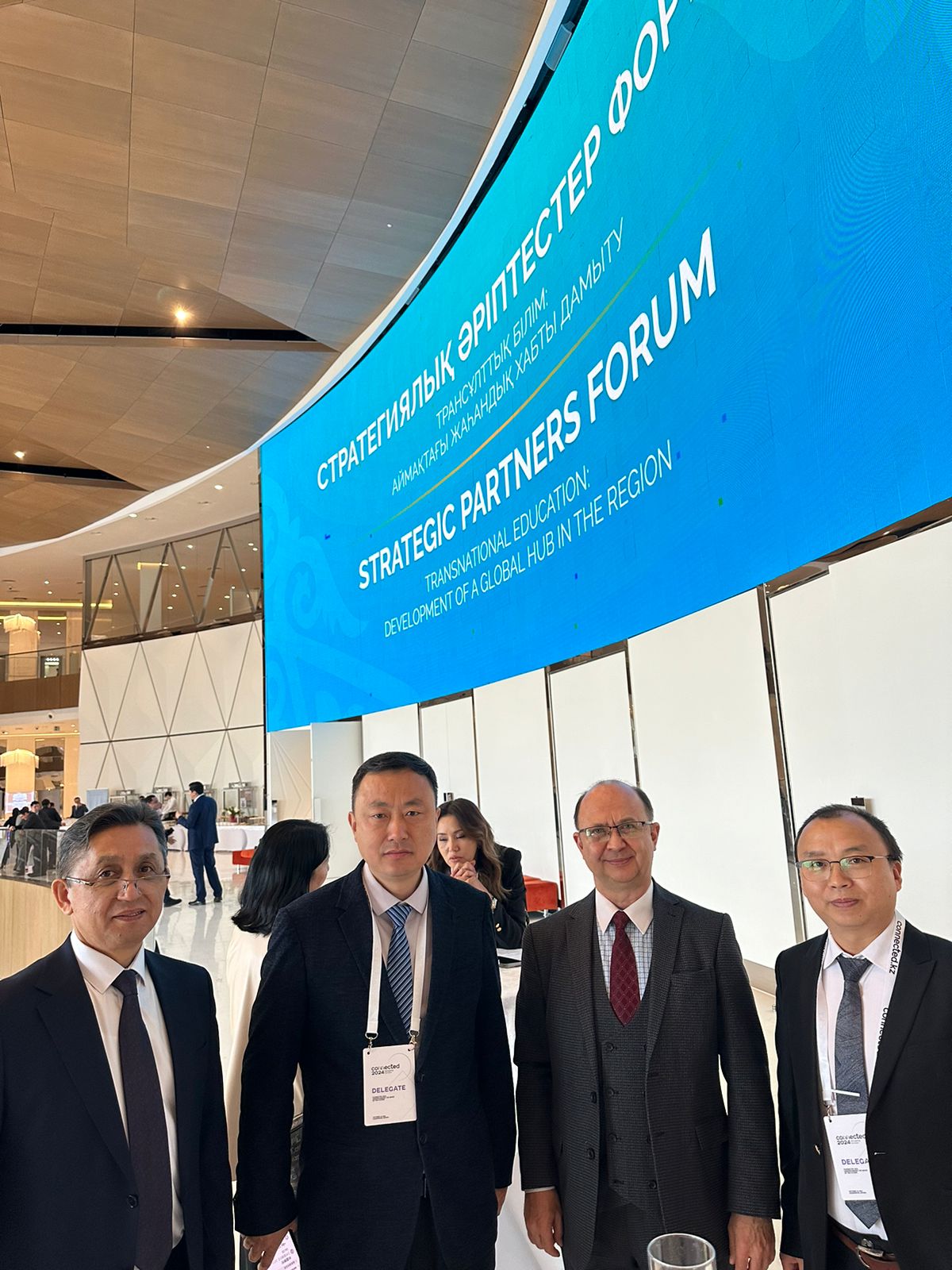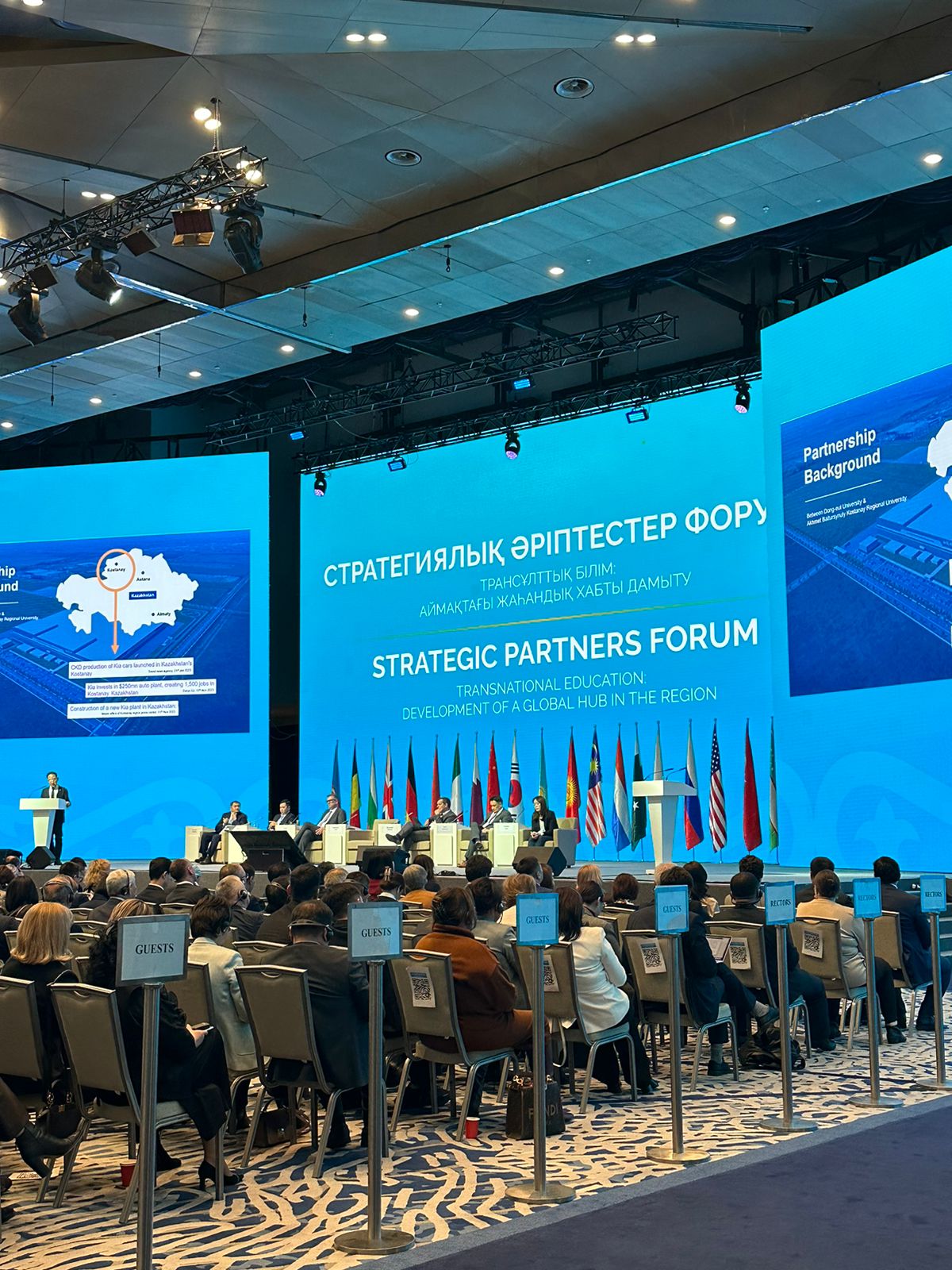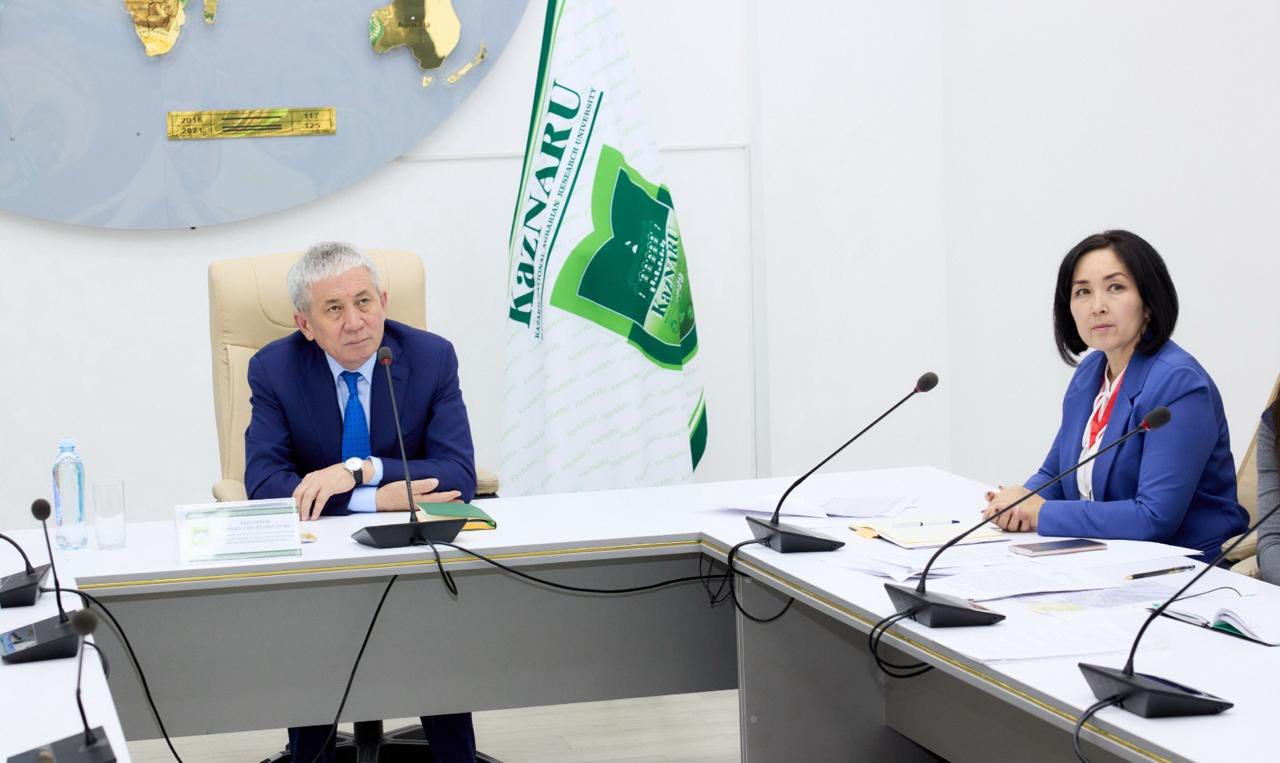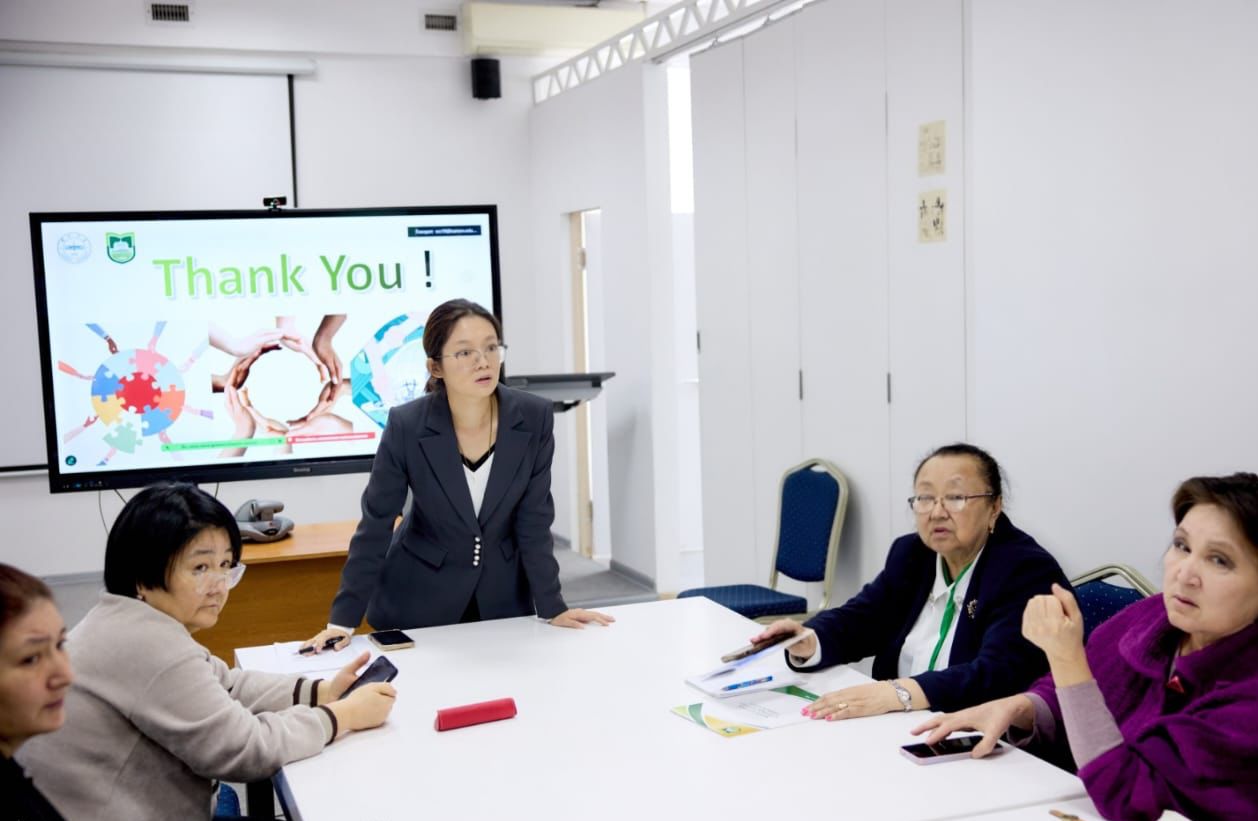INTERNATIONAL CONFERENCE “CONNECTED 2024”: EDUCATIONAL TECHNOLOGIES, ChatGPT AND IMPACT ENTREPRENEURSHIP
 The “Connected 2024” international conference brought together approximately 1,500 delegates from over 20 countries, including more than 100 distinguished scientists and representatives of the world’s leading universities. Among the participants was the Vice-Rector for International Relations and Strategic Development at KazNARU, Rafis Abazov, who actively represented Kazakhstan’s top academic institution.
The “Connected 2024” international conference brought together approximately 1,500 delegates from over 20 countries, including more than 100 distinguished scientists and representatives of the world’s leading universities. Among the participants was the Vice-Rector for International Relations and Strategic Development at KazNARU, Rafis Abazov, who actively represented Kazakhstan’s top academic institution.
 Dedicated to artificial intelligence (AI), educational technologies, and impact entrepreneurship, "Connected 2024" was held under the theme “Preparing for the Future: Education and Entrepreneurship in the Age of AI.” Speakers addressed how education and science systems must adapt to these emerging realities to equip the next generation for an increasingly dynamic world.
Dedicated to artificial intelligence (AI), educational technologies, and impact entrepreneurship, "Connected 2024" was held under the theme “Preparing for the Future: Education and Entrepreneurship in the Age of AI.” Speakers addressed how education and science systems must adapt to these emerging realities to equip the next generation for an increasingly dynamic world.
 “In terms of educational technologies, several critical points were highlighted,” said Rafis Abazov. “Firstly, the integration of AI into education to personalize learning, enhance student outcomes, and improve the effectiveness of educational programs. Secondly, we discussed virtual laboratories and online platforms, which allow for practical learning and experimentation without requiring physical presence. Cybersecurity in educational institutions, including how to protect the data of students and teachers in a digital environment, was also a key focus.”
“In terms of educational technologies, several critical points were highlighted,” said Rafis Abazov. “Firstly, the integration of AI into education to personalize learning, enhance student outcomes, and improve the effectiveness of educational programs. Secondly, we discussed virtual laboratories and online platforms, which allow for practical learning and experimentation without requiring physical presence. Cybersecurity in educational institutions, including how to protect the data of students and teachers in a digital environment, was also a key focus.”
 Impact entrepreneurship, an essential part of the educational framework, aims not only at profitability but also at creating positive social change. In education, this translates into the development and application of technologies that contribute to sustainable development and address pressing social issues. The conference featured successful case studies of impact startups already innovating within the educational sector, with initiatives ranging from creating programs for vulnerable groups to developing eco-friendly solutions and improving the quality of life in various regions.
Impact entrepreneurship, an essential part of the educational framework, aims not only at profitability but also at creating positive social change. In education, this translates into the development and application of technologies that contribute to sustainable development and address pressing social issues. The conference featured successful case studies of impact startups already innovating within the educational sector, with initiatives ranging from creating programs for vulnerable groups to developing eco-friendly solutions and improving the quality of life in various regions.
 Education and science systems must become increasingly flexible to embrace new technologies and approaches. Curricula need to be updated and revised to incorporate modern disciplines such as AI, ChatGPT programming, and data analysis. Hybrid learning models that blend online and offline formats will also empower students to learn at their own pace and develop self-directed learning skills. Collaborations with technology companies and startups can provide educational institutions with access to cutting-edge technologies and expertise. Moreover, fostering critical thinking, teamwork, and innovative problem-solving skills among students will help them navigate future challenges.
Education and science systems must become increasingly flexible to embrace new technologies and approaches. Curricula need to be updated and revised to incorporate modern disciplines such as AI, ChatGPT programming, and data analysis. Hybrid learning models that blend online and offline formats will also empower students to learn at their own pace and develop self-directed learning skills. Collaborations with technology companies and startups can provide educational institutions with access to cutting-edge technologies and expertise. Moreover, fostering critical thinking, teamwork, and innovative problem-solving skills among students will help them navigate future challenges.
 "Connected 2024" underscored that the future of education and science lies at the intersection of technology and humanity. AI and impact entrepreneurship present significant opportunities for all stakeholders. The outlook is promising: we are on the verge of achieving greater accessibility and quality in education for everyone, regardless of geographic location or socioeconomic status. Tools like ChatGPT will enable the creation of personalized learning paths tailored to individual needs, while AI-driven scientific research will unlock new possibilities through faster data analysis.
"Connected 2024" underscored that the future of education and science lies at the intersection of technology and humanity. AI and impact entrepreneurship present significant opportunities for all stakeholders. The outlook is promising: we are on the verge of achieving greater accessibility and quality in education for everyone, regardless of geographic location or socioeconomic status. Tools like ChatGPT will enable the creation of personalized learning paths tailored to individual needs, while AI-driven scientific research will unlock new possibilities through faster data analysis.
 Crucially, the social aspect of education must not be overlooked, with a concerted focus on addressing global challenges like climate change, poverty, and inequality.
Crucially, the social aspect of education must not be overlooked, with a concerted focus on addressing global challenges like climate change, poverty, and inequality.
Press Service of KazNARU
